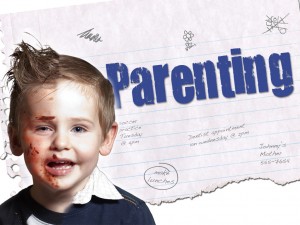 Here’s the summary of what seemed to be the bigger findings to emerge about ‘bringing up baby’ in 2012.
Here’s the summary of what seemed to be the bigger findings to emerge about ‘bringing up baby’ in 2012.
No. 1: As freedom wanes in children, so does creativity
According to Kyung Hee Kim, a professor at the College of William and Mary, all aspects of creativity are in decline for kids, the biggest being in the measure called Creative Elaboration – which assesses the ability to expand on ideas in novel ways.
Kim, analyzed test scores from kindergarten through twelfth grade over several decades using the Torrance Tests of Creative Thinking (TTCT). The scores on these tests began to decline somewhere between 1984 and 1990 and have continued to decline since. Grade level didn’t matter.
This decline in creativity should raise concern in the business world, where creativity is an important asset because it is one of the biggest driving forces for innovation and problem solving. There are also very strong links between creative scores and success in life, with the TTCT being a greater predictor of adult achievement than IQ and peer reports and many other metrics.
No. 2: Overly coddled children can grow into incompetent adults
Research shows it is important to communicate, encourage, and cuddle with your youngsters a lot if you’re interested in raising highly moral and empathetic children. Just be careful not to go from cuddling to coddling.
When kids are praised for everything and told they are ‘special’ it does two things: reduces their desire to put in effort and reduces their ability to self-regulate because they do not challenge themselves. Self-regulation is a central player in whether people succeed or not. Researcher Carol Dweck has shown that a ‘change’ mindset versus a ‘fixed’ mindset is central to learning. Trying to instill high self-esteem in kids without ever challenging them is likely to leave these future adults in a ‘set’ mindset, less able to develop themselves and most importantly, less willing to change negative circumstances that come their way.
Coddling children, results in developing adults who expect a lot from life but are not willing to give much in order to get what they want.
No. 3: Fostering delinquency in our young by being too controlling
There are three common styles of parenting: authoritarian, authoritative, or permissive — each of which have their own characteristics. Recent studies show one of the styles results in a higher likelihood of fostering delinquent children.
Authoritative parents are both demanding and controlling, but they are also warm and receptive. They want their children to work independently, but hold high expectations for them as well.
Permissive parents (also sometimes known as indulgent parents), are warm and receptive to their children’s needs, while making relatively few demands upon their children.
Authoritarian parents have a harsh approach to child-rearing — “it’s my way or the highway,” in other words. These types of parents are more concerned with raising obedient, and disciplined children — which might sound okay at face value, but this style is more likely to raise disrespectful, delinquent children who do not see them as legitimate authority, according to new research from the University of New Hampshire by Rick Trinkner, a doctoral candidate.
So we don’t want to coddle them too much, but we also don’t want to be too authoritarian. Bringing up kids is quite the puzzle.
No. 4: Parents misread their child’s emotional cues
The study commenced with asking 228 psychologically healthy children aged 4 to 11 about their worry levels. These children were asked questions about general anxiety, panic, social phobia and separation anxiety. The study found that the answers provided by the children did not correlate with the answers that their parents’ (usually the mother’s) provided about their children’s experience of worry. The results show that parents tend to underestimate how much anxiety their kids really experience.
In a following study on children’s optimism levels, 90 more children aged 5 to 10 answered questions about their optimism, while their parents also answered questions about their own and their children’s optimism. The results again all failed to correlate, this time with the parents overestimating their children’s experience of optimism. (A revealing detail in this study was that the parents’ own optimism levels were related to how they interpreted their children’s levels.)
No. 5: Being too afraid to joke around and have fun
The last big surprise in parent research comes from researcher Elena Hoicka, Ph.D. who believes parents who joke and pretend with their toddlers are helping their children develop life skills.
“Parents, carers and early years educators shouldn’t underestimate the importance of interacting with young children through jokes and pretending,” Hoicka says.
A study examined whether parents use different cues (such as tone or pitch of voice) that helps their toddlers differentiate between joking and pretending. The findings weren’t much of a surprise; it revealed that parents use different language styles and non-verbal cues when interacting with their children without even knowing.
When pretending, parents tend to talk slowly, loudly and repeat their actions. When joking, parents tend to use a more heightened, and exaggerated tone. Not only does this practice teach children how to differentiate between what reality is and what is non-believe, but by spending more time with your children, confidence levels of both the parent and child boost as well.
So there you have it. Lots of insights about how we can be better parents, all of which come down to building just the right circuitry in the developing child’s brain. They need freedom to think, but not told they are just ‘special’. They need to be stretched, but also supported. They experience stronger emotions than parents can tell, and above all they appreciate fun. Sounds like being a kid may be tough, but being a parent can be an even tougher growth journey.
Source:
